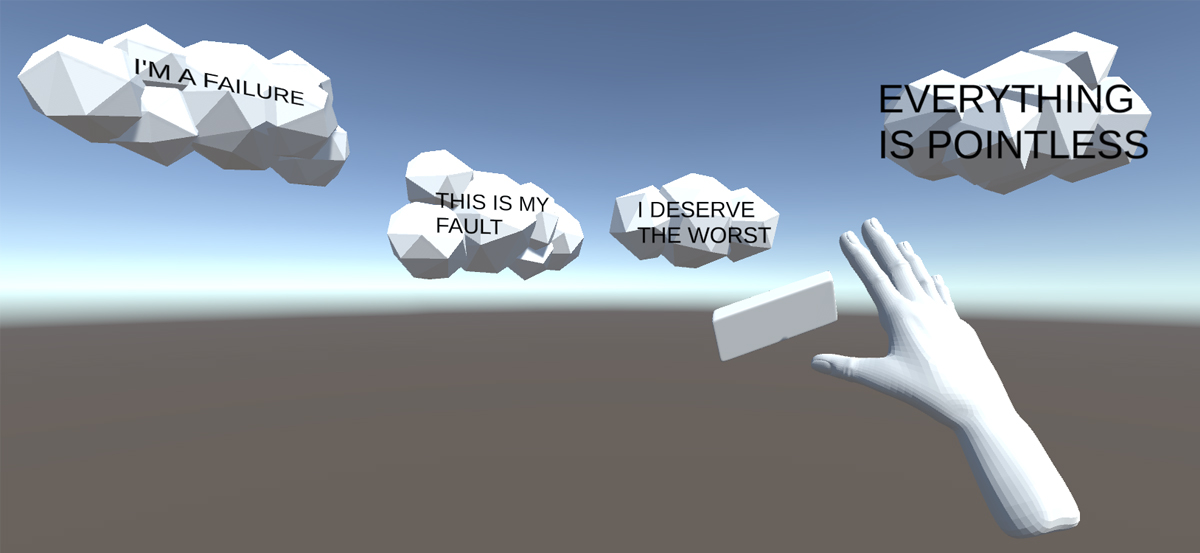Depression is a common mental disorder with a large treatment gap. Low-intensity, automated Virtual Reality (VR) interventions (not requiring a therapist) is a scalable and promising solution now that VR is an accessible and mature, consumer technology. Yet unlike with phobias, there have been few attempts at translating evidence-based cognitive behavioral therapeutic (CBT) techniques for depression into the VR modality.
In a new paper, that was just accepted in Frontiers in Psychiatry, we discuss how specific CBT techniques can be made into VR experiences, including psychoeducation, behavioral activation, cognitive restructuring, and social skills training. We also discuss how VR-unique experiences such as alternative embodiment and virtual pet interactions can be made therapeutic. Creating a pre-clinical and clinical evidence base for these types of novel interventions should be considered a research priority, and high-quality development on par with other consumer VR applications will be essential to the success of any consumer-targeted intervention. If this is achieved, low-intensity VR interventions for depression have great potential to make an impact on public mental health.
Read the full paper (open access):
Lindner, P., Hamilton, W., Miloff, A., & Carlbring, P. (2019). How to Treat Depression With Low-Intensity Virtual Reality Interventions: Perspectives on Translating Cognitive Behavioral Techniques Into the Virtual Reality Modality and How to Make Anti-Depressive Use of Virtual Reality–Unique Experiences. Frontiers in Psychiatry, 10(792). doi:10.3389/fpsyt.2019.00792
